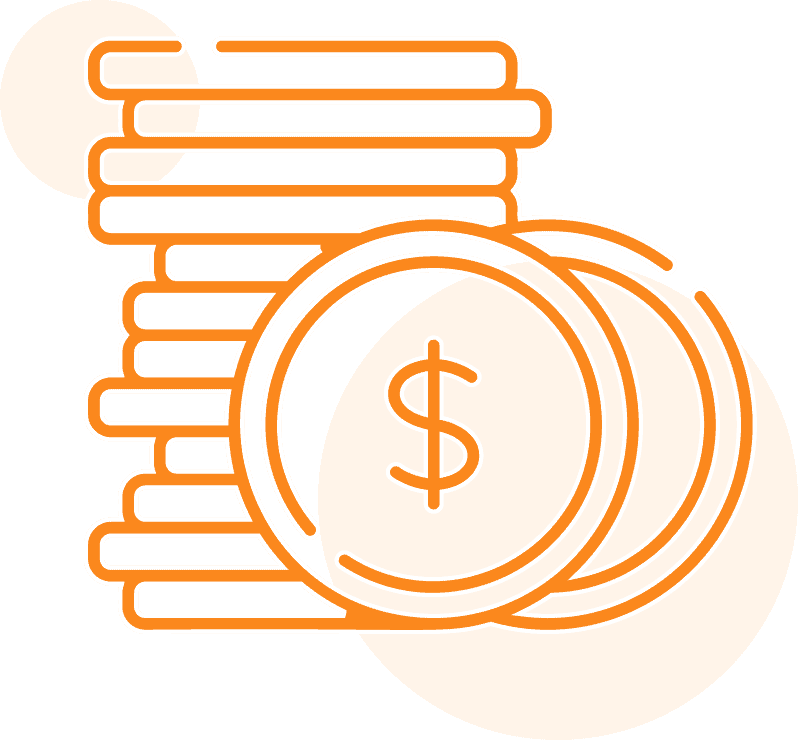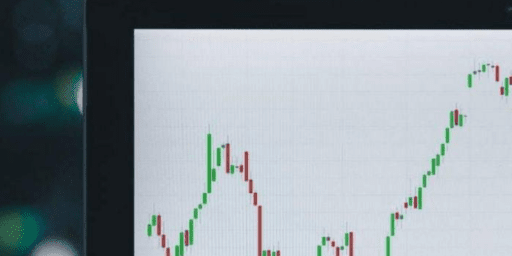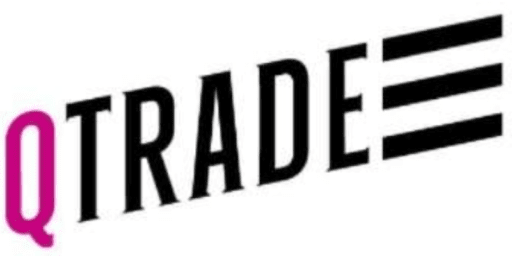Best Canadian Dollar (CAD) ETFs for U.S Equities
A reader recently emailed me about my thoughts on the best US Dollar USD ETFs vs CAD ETFs when it comes to getting portfolio exposure to the American market.
You may already know that I’m a fan of index investing using the best ETFs available. Whether that’s all-in-one ETFs, Canadian dividend ETFs, or in this case, if you’re looking to overweight American equities specifically – the best US market ETFs in CAD.
What it essentially boils down to is the following:
1) Is the underlying ETF tracking the right market?
2) What currency is the ETF traded in? (Canadian Dollars or US Dollars)
3) How much legwork do you want to do in order to reduce the fees needed to transfer Canadian Dollars to US Dollars?
4) What are the annual fees charged to each ETF?
The best online broker to use when it comes to purchasing US equities in either USD or CAD is Qtrade. The reason is that they allow a wide variety of ETFs to be bought and sold completely for free. That even includes popular US-listed ETFs!

Best 2026 Broker Promo
Up To $5,000 Cash Back + Unlimited Free Trades
Open an account with Qtrade and get the best broker promo in Canada: $250 when you invest $1,000!
The offer is time limited - get it by clicking below.
Must deposit/transfer at least $1,000 in assets within 60 days. Applies to new clients who open a new Qtrade account by March 31, 2026. Qtrade promo 2026: CLICK FOR MORE DETAILS.
Currency Battle: CAD vs USD ETFs for Canadians
I could probably write a whole article on CAD vs USD based ETFs, but when it comes down to it, the cost of owning ETFs depends on the type of account that it’s held and what currency it is listed in.
That is because there is often a foreign withholding tax (FWT) on ETFs with US and international coverage. However, as a rule of thumb, MERs of USD ETFs are generally lower than their Canadian counterparts. That said, S&P 500 ETFs in Canada have been catching up quickly when it comes to the MER battle over the last few years.
On the other hand, as previously mentioned, even though it may cost less to own the USD version of the ETF, there are also currency conversion fees to account for.
Brokerages can charge as much as an extra 2.5% to move money between currencies. There are ways to reduce the currency exchange fee, such as using Norberts Gambit, but depending on the brokerage, it can feel like a bit of work.
The next best thing, in keeping with the theme of simplicity, is to keep everything in CAD and to use CAD-based ETFs when getting US or global exposure.
Best US Equity ETFs in CAD
Now that we’ve talked a little about the background and the why’s of index investing. Let’s dig into the specifics of the topic at hand – US equity ETFs in CAD.
There are a number of ETFs that provide US coverage in CAD and here are some popular choices from various providers. Here’s our top 3 US equity ETFs for Canada – and you don’t need to do any currency conversion to purchase them in your online broker account (making it simply and easy).
| ETF | Description | MER |
| XUU | iShares Core S&P U.S. Total Market Index ETF | 0.08% |
| VFV | Vanguard S&P 500 Index ETF | 0.09% |
| ZSP | BMO S&P 500 Index ETF | 0.09% |
XUU is my personal favourite as it gives a small amount of exposure to the next 3,000+ largest companies in the USA after the S&P 500. These smaller companies have proven to outpace their bigger siblings over the long term in the USA.
I generally like to stick with broad based ETFs as they are low cost performers over the long term. Some of you may ask about more technology exposure as it’s the flavour of the day (or year).
Never fret, even with broad based US ETFs, you’ll get plenty of technology exposure. Technology stocks have become so large that they have pretty much taken over the S&P500.
For example here are the Top 10 Holdings of the S&P 500:
- Microsoft Corp.
- Apple Inc.
- Amazon.com Inc
- Tesla Inc.
- Alphabet Inc A
- Facebook Inc. Class A
- Alphabet Inc C
- NVIDIA Corporation
- Berkshire Hathaway B
- Johnson & Johnson
Best US Equity ETFs in USD
Hey, you’re a maximizer – we get it.
If you’re looking to cut costs to the absolute lowest possible level, you should Norbert’s Gambit to turn your Canadian Dollars into American Dollars (thus avoiding a lot of currency transaction costs) and look at purchasing one of our top 3 US USD Equity ETFs.
| ETF | Description | MER |
| VTI | Vanguard Total Stock Market ETF | 0.03% |
| IVV | iShares Core S&P 500 ETF | 0.03% |
| VOO | Vanguard S&P 500 ETF | 0.03% |
You can see from our above three selections that the American market has forced ETF providers to be ultra-efficient when it comes to pricing their offerings.
You really can’t go wrong with any of these three (or numerous other S&P 500 ETFs with an MER of 0.03%). I just prefer the VTI ETF because like it’s CUU Canadian cousin, it gives you exposure to a broader swath of the US market.
Do I Put US ETFs in My TFSA or RRSP?
This question gets into some pretty minute taxation details beyond the scope of a single article.
If you want the full description of which accounts (RRSP vs TFSA vs Non-Registered) should be used to shelter ETFs that track indexes from around the world check out our free eBook: Can I Retire Yet.
The quick and easy of it is – your RRSP is probably the best place for that US Equity ETF if you’re a Canadian resident – especially if it’s purchased off of the New York Stock Exchange in American Dollars.
FAQ: US Equity in USD vs CAD
US ETFs vs. Investing In US Stocks
When it comes to investing in the US market (usually through the New York Stock Exchange or NASDAQ exchange) most Canadians aren’t interested in doing the legwork needed to analyze the thousands of American companies.
That said, if you’re thinking about dipping your toe in the stock-picking waters outside of Canada, make sure and read our primer about investing in the Canadian stock market vs the US stock market.
You might also be interested in looking at the Neo Exchange in Canada, where you can use CDRs (Canadian Depositary Receipts) to get portfolio exposure to individual US-listed stocks without having to convert currency.
Remember that US-listed stocks aren’t ideal from the perspective of paying currency conversion fees, as well as withholding tax on dividends.
What is Index Investing?
The global stock market can be broken down into indexes that track a particular stock market sector/country.
For example, a US equity index like the S&P 500, represents a basket of the 500 largest companies in the US sorted by how big they are (market capitalization).
The larger the company’s market cap, the more “weight” the company has on the index.
Each developed country has their own index that represents their largest companies and they commonly get added and removed from indexes as companies grow and shrink over time.
I have also just recently published an in-depth article about the differences between investing in the Canadian and U.S stock markets. It can help you understand which one is a better fit for your portfolio and investing goals.
Why Index Investing?
Now that we have the “what” taken care of, let’s talk about the “why”? There are a number of reasons why index investing just works:
- MERs matter – Lower fees mean that index investing can beat most equivalent active mutual funds out there over the long term. Remember lower MERs matter… a LOT.
- Diversification – Indexing provides a low cost way for Canadians to get international diversification. Canadian’s tend to have too much of their investments tied to Canada. More on US equity ETFs below.
- Simplicity – Index investing is easy, passive and hands off. With all the new ETF products out there today, you can essentially build a diversified, low-cost portfolio with a single all in one ETF.
Building an Index Portfolio
Now onto the good stuff. To build a globally-diversified indexed ETF portfolio, you’ll need index ETFs that cover the global markets. Specifically, you’ll need ETFs to cover the following:
- Canadian Index
- US Index
- International Index (MSCI)
- Emerging Markets
- Canadian Bond Index
It’s a great time to be an investor because there are a number of ETFs providers available for Canadians. Some of these providers include iShares, Vanguard, Horizons and the big banks!
While choice is great in that it drives competition to help keep fees low, too much choice can also be overwhelming. In this case, not only are there a number of providers offering very similar ETFs, they also offer the choice of ETFs in two currencies – CAD or USD.
You can read more about index investing in my article about the best indexing options for your portfolio.
In Conclusion
Altogether, my favourite broad-based US equity ETFs in CAD are both low cost and non-hedged (slightly more efficient).
1) For total US exposure – XUU – This is the lowest cost total US market ETF on the list with a low MER of 0.07%.
2) For S&P 500 only exposure – VFV or ZSP – There are a few low-cost S&P 500 ETFs on this list, but VFV and ZSP are both cheap (MER: 0.09%) and provide relatively high liquidity/trading volumes.
3) For taxable accounts US exposure – HXS – I like this Horizons SWAP product for taxable accounts because you don’t pay any tax on the dividends, only capital gains when you sell. This is also a strategic holding for children’s taxable portfolios as it would help avoid the dividend taxation that the parent would be expected to pay.










Hi
love your article. Thank you.
Do you have an article about the
Best Canadian Dollar (CAD) ETFs for QQQ?
Hello,
Just a question about the swap based etfs from Horizons and the smith manoeuvre. I know your preference for the SM is with dividend paying stocks but what about these swap etfs? Held for the long term in a non registered account they would be tax efficient but not with out risk with possible regulatory changes. Would they still qualify with CRA as income producing investments if they don’t pay a dividend?
Thanks
Hello,
Excellent grouping of information. Hope you will update continually and/or expand the contents in the table gradually covering extra strategies, such as, sectors, geographies…
And if so, maybe consider adding couple more columns identifying currency, hedged, call/put, …
Appreciate it.
Hi FT,
very useful post, Thank you.
Under the S&P500 only ETFs you suggest VFV and ZSP but not THU – why?
– they all have 0.09 MER
The only reason I ask deal with TD Waterhouse and have a bit of in-house bias.
great tips! I will have to check out these strategies with Interactive Brokers. Their exchange to usd don’t seem bad but as you know, these get slapped on and can be a surprise after the fact>
Big SECOND on VFV. Thanks!